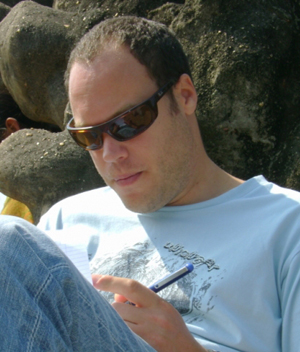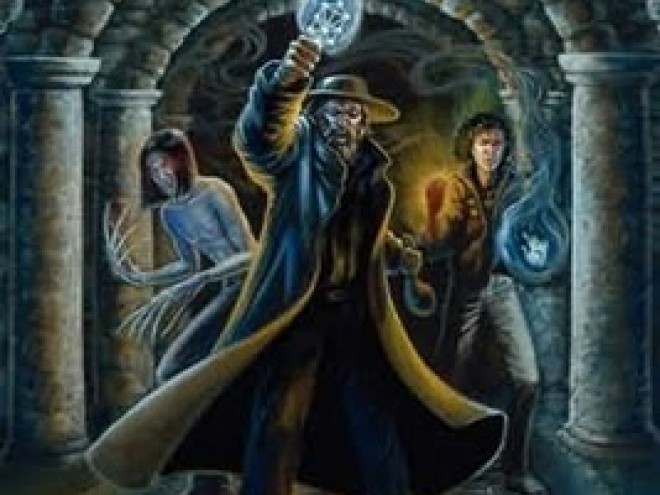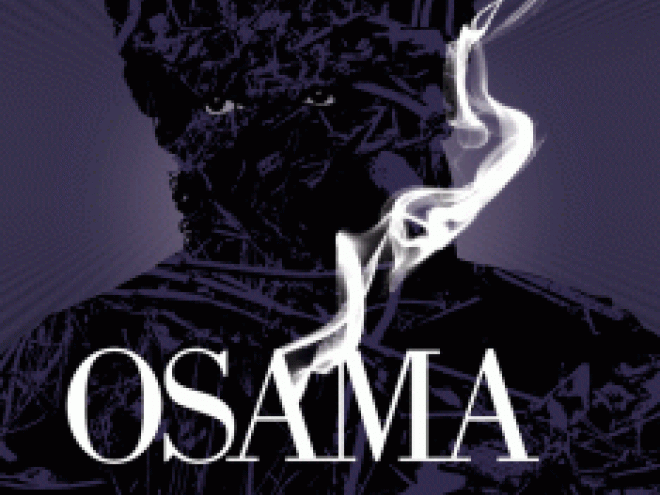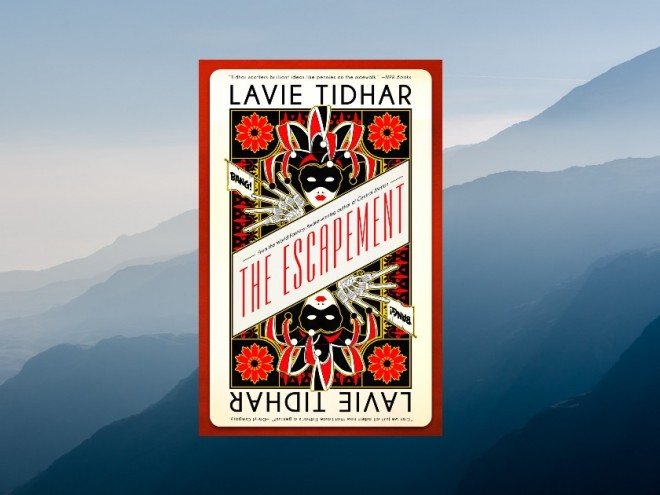Earlier this week, Lavie Tidhar wrote about his fixation on historical figures. He will be blogging all week for JBC and MJL. Being compared to Philip K. Dick is great, especially when they secretly mean “will die a penniless paperback writer at the age of fifty-three.” In other words, such a comparison doesn’t exactly invite trust.
Being compared to Philip K. Dick is great, especially when they secretly mean “will die a penniless paperback writer at the age of fifty-three.” In other words, such a comparison doesn’t exactly invite trust.
My new novel, Osama, recently came out. It’s available on the Kindle, and in a fancy hardcover edition from its small, UK-based publisher. It got rejected more times than Andie Macdowell’s character in Four Weddings and a Funeral had sex (“less than Madonna, more than Princess Di… I hope”). One can see why. For one thing, it’s called Osama.
The comparison I mention is, specifically, to Philip K. Dick’s The Man in the High Castle, made recently by reviewers for both the UK’s Guardian newspaper and The Financial Times. Yes, I’m tooting my own horn here. Someone has to! But of course Osama owes a huge debt to Dick’s brilliant alternative history, where the United States has lost World War Two and is divided between the victorious Germans and Japanese.
But I was thinking about Philip K. Dick a lot recently. He’s a constant reminder of Gustave Flaubert’s maxim, “Writing is a dog’s life, but the only life worth living.” Forget riches: for that matter, forget holidays, new clothes or a square meal more than once a week. Forget fame, either. Even notoriety is hard to come by these days. And forget respect: you’ll get reviews comparing your work, variously, to processed cheese or toilet paper, and you’ll be glad someone even noticed.
And yet and still. I can’t imagine doing anything better. Maybe I’m a romantic, fondly believing in the image of the artist starving for his art. I often talk about moving to that mythic attic in Paris where I could sit drinking bourbon and punching keys on my typewriter. You know. In the sixties.
I’ll move as soon as someone invented a time machine.
Maybe I’m just putting it on. I’m hardly starving. In fact I could do with losing a few. It’s the sedentary life, you know. You get more exercise from shifting books than writing them.
I commute from the bedroom to the lounge. Writing these days seems to consist mostly of checking your e‑mail, Spider Solitaire and Twitter, followed by checking your e‑mail again.
Nope. Nothing from Steven Spielberg today either. Red nine on black ten, red five on black six… is it four o’clock in the afternoon already? Where did the time go?
I’d better take another break.
Lavie Tidhar’s most recent novel is Osama (PS Publishing). It has been compared to Philip K. Dick’s seminal work,The Man in the High Castle by both the Guardian and the Financial Times. His other works include steampunk trilogy The Bookman, Camera Obscura and the forthcoming The Great Game, all three from Angry Robot Books, the novella Jesus & The Eightfold Path (Immersion Press), and the ground-breaking Jewish fantasy collection HebrewPunk. He grew up on a kibbutz in Israel and has since lived in South Africa, the UK, Vanuatu and Laos. He currently lives in London, and tweets too much.
Lavie Tidhar (A Man Lies Dreaming, Unholy Land) is an acclaimed author of literature, science fiction, fantasy, graphic novels, and middle grade fiction. Tidhar received the Campbell and Neukom Literary awards for his breakout novel Central Station, which has been translated into more than ten languages. He has also received the British Science Fiction, British Fantasy, and World Fantasy Awards. Tidhar’s recent books include the Arthurian satire By Force Alone, and the series Adler. He is a book columnist for the Washington Post, and recently edited the Best of World SF anthology. Tidhar has lived all over the world, including Israel, Vanuatu, Laos, and South Africa, and he currently resides with his family in London.



